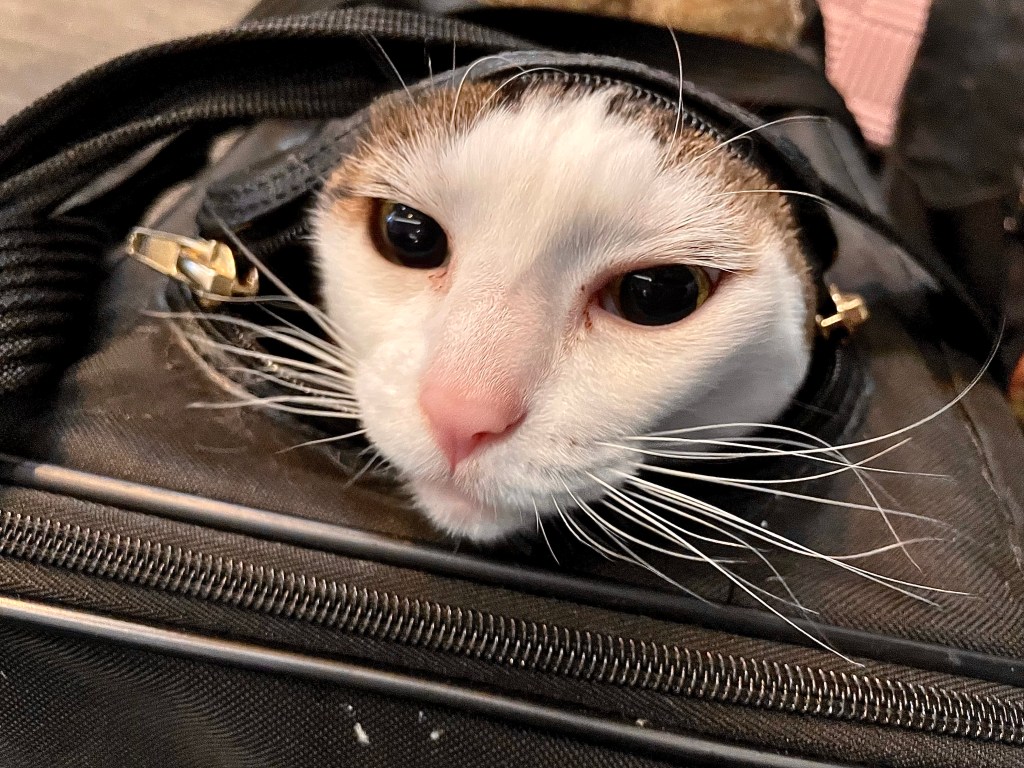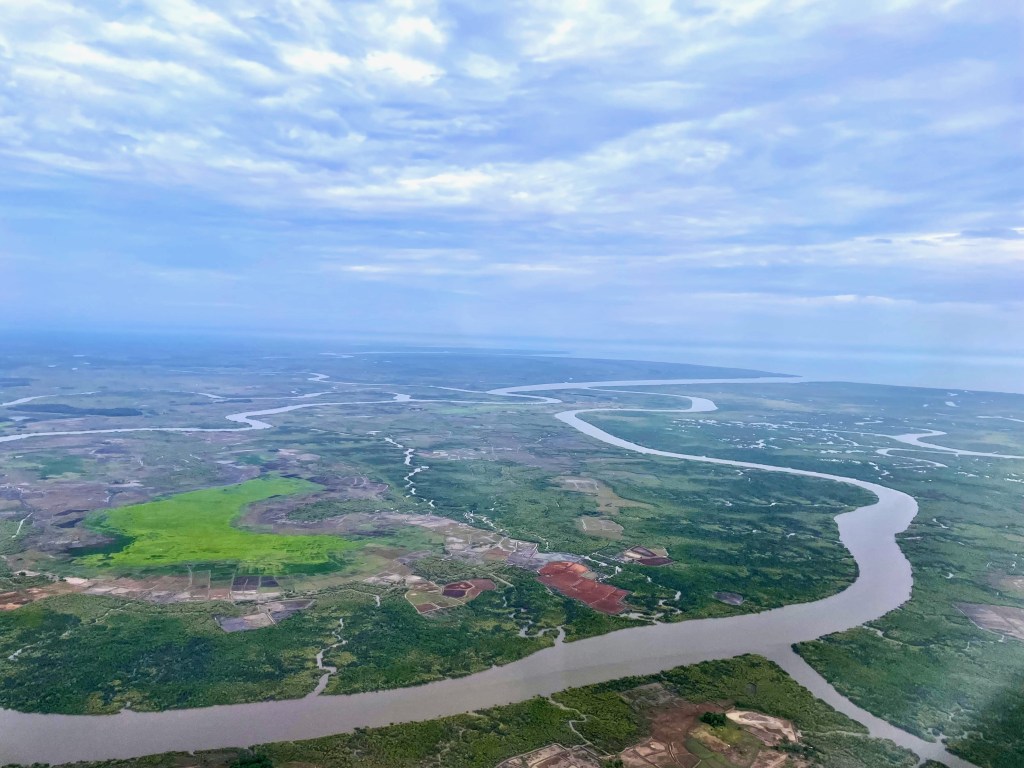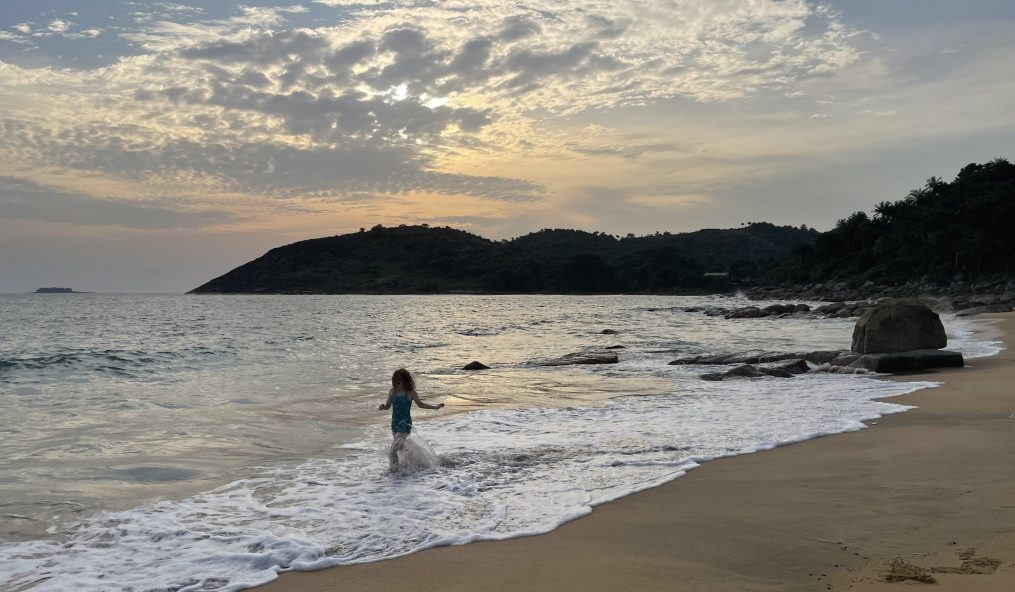
No matter how many times one moves in the Foreign Service, it is never quite the same. As much as one tries to prepare and learn from previous moves, each one is its own beast. It does not get any easier, it just becomes different.
Unlike in moves past, where I was working or in training right up until our PCS (Permanent Change of Station, aka moving day, aka the actual day or days of travel from one location to another), this time I opted to take some leave between training and our departure. I had had an inkling way back when I was organizing my PCS travel orders around April 2021, when I had to lay out a day by day plan my PCS from Malawi through to Guinea, that I might want some time off on the back end. After nine months of training online, through Zoom, much of it trying to learn French, I did indeed need a break before heading to Conakry.
Wait, how does that work? Well, between each overseas tour a U.S. Foreign Service Officer (FSO) has Congressionally mandated time off called Home Leave. That time must be spent in the United States and is intended to reacclimate and re-expose the officer to their home country. For each year in a post overseas, an officer earns 15 days of Home Leave. An officer is expected to take at least the minimum of 20 days of Home Leave between overseas posts (which can be combined with training) with a maximum of 45 days of Home Leave. And this does not include weekends or holidays! In my opinion, it is one of the best and most important benefits we have as FSOs.
Over the course of my now 11-year career, I have taken several permeations of Home Leave. Between Juarez and Shanghai, I took eight weeks as I had also earned Home Leave days while serving with the Department of Defense at our Embassy in Jakarta, Indonesia. Then between Shanghai and Malawi I took about seven weeks, using the last two to move into our training housing two weeks early (on my dime) to help us settle in a bit. Well, as much as you can settle into a place you will only live in for three months. In Malawi, we took a mid-tour home leave of 17 days when I extended for a fourth year, for which I had to seek a waiver to less than the 20 mandated days. This time, I opted for the first time to split Home Leave, with some taken before training and the rest after.
At first it was a whirlwind few weeks. I had my (very stressful) French exam, then final shopping and packing before the actual pack-out day (when the movers actually come and box everything up), then moving out of the State Department provided housing, and then our ten day trip out to Grand Teton and Yellowstone National Parks that ended in an unplanned early departure to escape the flooding. Then we had 12 more days until wheels up.
As we no longer had State Department housing, I moved us into a hotel room with kitchenette close to Dulles Airport, from which we would fly out. Myself, my daughter, our cat, and our four large, hastily packed suitcases. I had started off our pack-out preparations with some more thought-out suitcase arrangements but as the day grew closer, I just started tossing things haphazardly into them. I figured one project for our final 12 days would be trying to rearrange them into some semblance of order. I would say I half succeeded. At one point I simply gave up, realizing the suitcases looked the same from the outside whether they were packed neatly or chaotically inside.

It was a bit of a relief to only have the final PCS preparations on my to-do list for those last 12 days. That is not to say they were stress-free (they were not), but they were less stressful and messy than in the past. With COVID cases again rising and our departure looming, I tried to keep our interactions somewhat limited. Although frankly it was more an issue of low energy on my part. As a single FSO all of the PCS preparations fall to me and that combination coupled with all the energy I had needed for nine months of online training and the energy reserves I was trying to stockpile for the upcoming move and adjustment to a new job and new country, well I very much needed the down time.
I did take C back to one final day of school. For us to have the Grand Teton and Yellowstone trip at the beginning of Home Leave and not just before departure, I had pulled her out of school early. In my mind it was education, once in a lifetime, and a chance for us to bond with each other and with my aunt. Yet C had formed some strong bonds with her fourth-grade class and though she welcomed having less math, she lamented leaving her friends a bit early. When her fabulous teacher suggested to me that C make one final guest appearance on the next to last day of school, for Field Day, I had to make it happen. I also arranged for a play date with three of her best classmates the following week that started out with a few hours hanging out at a playground, then taking them all to see the new Jurassic Park movie, and then a final hour hanging out at one of the friends’ houses. I really cannot thank those girls’ moms enough for letting their girls spend a day with us. FSO kids live amazing lives, but they also move a lot, and that is really hard, too.
One of the biggest items on my PCS prep list was organizing the cat’s travel. Moving abroad with a pet is never, ever, ever easy. There are always last-minute documents needed that no amount of preparation can truly prepare one for. Recent changes wrought by the pandemic and the US’ own Center for Disease Control ban on dogs entering the US without significant extra paperwork, had only made things more difficult. Lord knows we have done this before. My diplo-cat Kucing is very well traveled having been born in Indonesia and moving from there to the US, then Mexico, then back to the US, then China, then back to the US, then to Malawi, then back to the US. This last move would prove no less stressful.
Back in January I had learned that the EU had instituted new rules beginning this year that pets – dogs and cats – transiting the EU would be subject to the same rules as if they were entering the region. And that animals from any country deemed at high risk for rabies would require a titer test to transit. Initially the regulations were not well promulgated, and it was not clear if we would have to meet the latter requirement. Therefore, I had Kucing’s rabies updated a few months early, back in February, in case the titer (which needs several months lead time) would be needed. Thankfully, travel from the US did not trigger that rule. Still, I would need an import certificate for both Guinea and the EU signed by a veterinarian and endorsed by USDA-APHIS. Though Guinea would accept an electronically signed certificate, the EU would only accept an in-person signature.
The certificate paperwork cannot be completed any earlier than 10 days before travel. Many veterinarians, having just returned to pre-pandemic scheduling, were inundated with appointment requests. I managed to get a “drop-in” appointment one week before departure and that afternoon the certificate paperwork was FedExed off to the USDA-APHIS office in Albany, NY. Though there are USDA-APHIS offices in Richmond, Virginia and Harrisonburg, Pennsylvania, those offices were no longer accepting in-person appointments. The only way to do it was to FedEx. And I waited. By Friday, the paperwork was still not back. Long story short, the paperwork was completed late afternoon on Friday, but although I had paid for FedEx Priority Overnight, someone (not me!) had helpfully selected “weekday only” and thus the paperwork was returned on Monday morning to the vet’s office. But by 10 AM I had the paperwork in hand and by 2:30 PM we (C, myself, and Kucing the Cat) were on our way to the airport. (Fun fact: NO ONE looked at that paperwork at any part during our journey!!)

Mostly for our last 12 days, C and I tried to get our fill of things we would miss. Yes, we did both get our respective COVID boosters and we did some last-minute shopping. We visited two shopping malls – you know, the gigantic American kind. We also had a dinner with our family, my parents, my sister and brother-in-law, and their kids, and aunt CW. And we ate all the veggie sushi, string cheese, Domino’s pizza, Taco Bell, Subway, and chicken nuggets we could. We also saw two movies. Conakry reportedly has a movie theater (unlike Malawi, which had zero), but films will mostly be in French.
Then suddenly it was time! I grabbed the paperwork from the vet and raced back to the hotel. I dropped off the car my father had loaned us for the duration of our time in the US; he drove me back to the hotel. Final, FINAL packing. The large van arrived to take us and all our luggage to the airport. We were checking in. Through security. At the boarding lounge. And then take off. Transit through Brussels. And then about 21 hours later after taking off from Dulles Airport we landed in Conakry, Guinea. Our new home.

